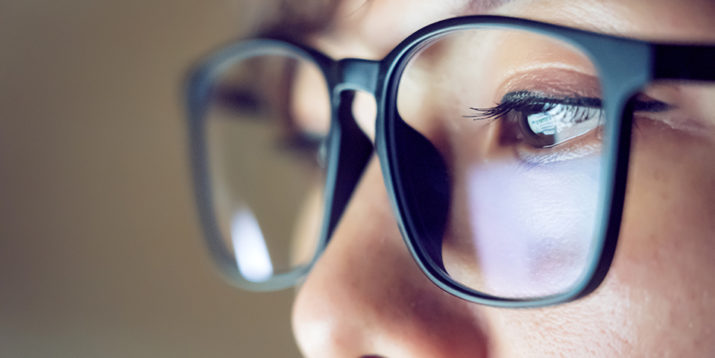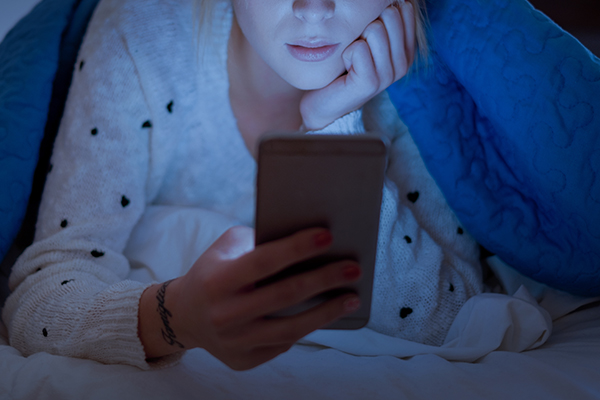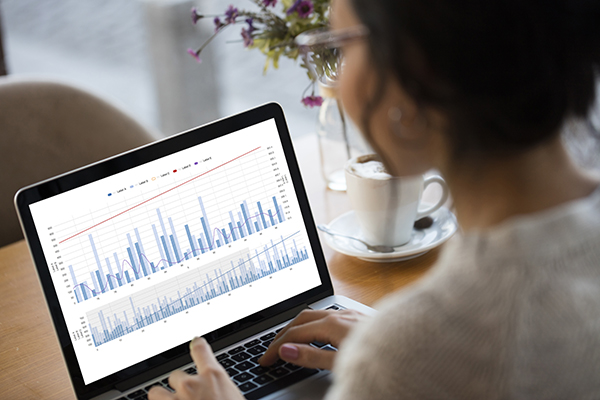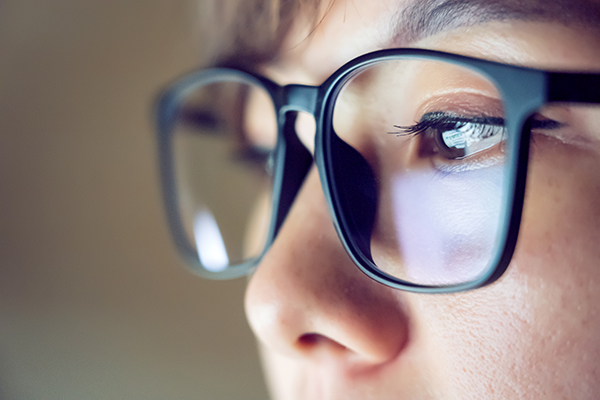What Is Blue Light & How Does It Affect Sleep?

With many of us increasingly glued to our screens from morning till night, blue light from devices has become an increasing concern when it comes to sleep.
But what is blue light? And what does it have to do with sleep?
Studies have found that the blue light emitted from devices can mess with your sleep patterns and your body’s ability to power down, explains Dr. Neda Shamie, M.D., of the Maloney-Shamie Vision Institute.
Ending screen time earlier in the evening is a natural remedy for getting more sleep.
And we all know how much sleep we *should* be getting for optimal health, but is the blue light from our screens thwarting our efforts?

What Is Blue Light?
Different wavelengths make up visible light from the sun and other devices. “Blue light is the shortest and most energetic,” says Dr. Amir Moarefi, M.D., M.S., at Eye Physicians of Long Beach, California.
And it’s literally everywhere.
“Sunlight is the main source of blue light, but sunlight also contains red, orange, yellow, and green, and many shades of each,” says Shamie.
“Digital screens and energy-efficient lighting are the next most common source. Given that we spend so much time indoors and in front of screens, there is a significant shift toward these becoming the main source of blue light, ” she adds.
In contrast to sunlight, many computer screens only have red, green, and blue sources.
What Does Blue Light Do to Your Body?
Using sunrise and sunset as starting points, blue light makes us more alert and kick-starts our brains.
In other words, sunshine actually does make us rise and shine, which is great during the day but not ideal at night.
“In the evening, blue light throws the body’s natural biological clock, its circadian rhythm, out of sync, and our sleep suffers greatly,” says Shamie.
Studies suggest that blue light exposure from devices at night may inhibit melatonin production, a sleep-inducing hormone.
Blue light also creates the most “light noise,” explains Shamie. “It reduces contrast and strains our eyes focusing ability and inhibits its natural blinking reflex.”

Is It Better to Have a Blue Light Filter On or Off?
Having some exposure to blue light is natural — and even good in some cases.
For people with seasonal affective disorder, studies have found blue light plays a major role in light therapy.
However, scrolling through the socials on your phone late at night isn’t the same thing.
Over-exposure to blue light from your devices around bedtime can mess with your sleep cycle.
Do Blue Light Blocking Glasses Work?
“There is no evidence that blue light-blocking glasses will protect your eyes from damage,” says Moarefi.
“However, anecdotally, people report having less eye strain and less eye fatigue, but there’s no way to say they truly work because they have not been studied enough,” he adds.
Researchers haven’t found much conclusive evidence for blue light glasses working to improve sleep quality, alleviate eye fatigue, or conserve macular health.
“I have companies hitting me up on Instagram all the time, but as an eye doctor, I can’t say they work without more evidence-based medicine. However, if you have issues with bright light, see if they help. There’s no harm in trying them,” he says.
For issues linked to spending too much time on screens, such as dry eyes after a long day, he recommends lubricating your eyes for relief.

Tips for Balancing Blue Light Exposure
To limit your blue-light exposure, try Dr. Shamie’s tips:
1. Follow the 20-20-20 Rule
When working on digital devices, every 20 minutes, take a 20-second break and look at something 20 feet away.
2. Turn Down the Light Noise
Avoid looking at bright screens starting two to three hours before sleep. “This may a good time to get into the old habit of reading a [physical] book or meditation,” she advises.
3. Try a Blue Light Filter
Consider installing an app that filters the blue and green wavelengths at night if you have to work on the computer.
4. Switch Your Beside Lamp
Avoid using LED or low-energy lights in your bedroom as they emit significantly more blue light than incandescent lights.
